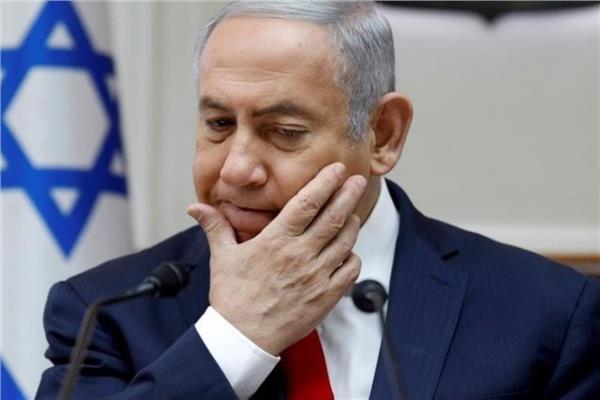ICC seeks arrest in Israel-Palestine conflict
In a monumental move, the International Criminal Court (ICC) has called for the arrest of key Israeli and Palestinian figures, amid allegations of war crimes and crimes against humanity in Gaza.
Published May 21, 2024 - 00:05am

Image recovered from shorouknews.com
In an unprecedented action, the International Criminal Court's Chief Prosecutor, Karim Khan, has Issued a request for arrest warrants against several high-ranking Israeli and Palestinian officials, including Israeli Prime Minister Benjamin Netanyahu, on charges of war crimes and crimes against humanity related to the conflict in Gaza. These charges arrive amidst escalating tensions and a humanitarian crisis in the region.
The allegations highlight severe accusations such as the willful causing of suffering and starvation of civilians as methods of warfare—considered criminal under international humanitarian law. Netanyahu and Israeli Defense Minister Yoav Gallant, alongside Hamas political leader Yahya Sinwar, and two other senior Hamas leaders Mohammad Deif and Ismail Haniyeh, are among those named.
According to the prosecutor's findings, the defendants systematically deprived civilians in Gaza of essential life materials, amidst a total blockade including the shutting down of border crossings and cutting off electricity and water supplies, exacerbating malnutrition and dehydration among the populace, and hampering aid agency operations. The gravity of the situation in Gaza saw widespread malnutrition and a significantly higher number of Palestinian fatalities, including infants and children.
While Israel maintains its right to defend its citizens, the ICC asserts that such a right does not absolve it or any state from adhering to international humanitarian law. The methods Israel chose for combatting its objectives in Gaza, which led to death, starvation, and severe suffering, are deemed criminal by the ICC. There are substantial grounds for believing that the severe actions were part of a coordinated plan involving starvation as a method of war and other violence against civilians—a form of collective punishment penalized under international law.
The plea stresses an ongoing commitment to investigating all alleged crimes and promises concerted efforts alongside international partners to ensure justice. This appeal from the ICC echoes the broader international community's call for accountability and ethical conduct, even during wartime, and signals to state actors the imperative of protecting human rights and dignity in the midst of conflict.
In light of these grave accusations, reactions from the international community have been varied. Some members of the United Nations have expressed support for the ICC's actions, emphasizing the need for accountability in instances where international law may have been violated. The European Union, a staunch advocate for the rule of law, has called for a thorough and transparent investigation into the allegations to ensure impartial justice. However, critics argue that the ICC's actions could further inflame an already volatile situation, potentially impacting ongoing peace negotiations and regional stability.
The ICC's move is exceptionally noteworthy as it weaves through a fraught political and legal landscape; the court has previously been accused of bias against Israel, which is not a party to the Rome Statute that established the ICC. Israel and the United States have contested the ICC's jurisdiction in this matter, citing concerns about the overreach of its mandate. Meanwhile, the Palestinian Authority, which joined the court in 2015, has endorsed the ICC's scrutiny, seeing it as a pathway to international recognition of the Palestinians' right to justice.
The announced intention to issue arrest warrants has brought to the fore long-standing debates concerning the conflict's complexity and the broader implications of international intervention. The move has sparked a dialogue about the right to self-defense versus the obligations to protect human rights and comply with international humanitarian standards. The charged dialogue encompasses the justifications and limits of military engagements and blockades, especially in densely populated civilian areas.
Domestically within Israel, the announcement has stirred a political hornet's nest, with Netanyahu's critics and allies locked in debate over the implications for Israel's security and international standing. This development injects another layer of complexity into the already turbulent Israeli political scene, which has seen several elections in recent years due to a fractured political landscape.
On the Palestinian side, the reaction to the ICC's action has been cautiously optimistic but tinged with skepticism. Many Palestinians feel they have been let down by international institutions in the past and are wary of celebrating premature victories. Nonetheless, for the families that have suffered losses amidst the conflict, the prospect of high-ranking officials being held accountable offers a glimmer of hope for justice.
The ramifications of the ICC's actions extend beyond the immediate legal proceedings—its decision also impacts the canvas of international relations and the principle of universal jurisdiction. This action underscores the imperative for countries to adhere to the protocols of international law and represents a significant test of the enforceability of war crimes statutes across national jurisdictions. Amidst the rapidly evolving geopolitical landscape, the world watches with a keen eye as to how this unprecedented legal undertaking will unfold and shape the future of conflict resolution and international law enforcement.







